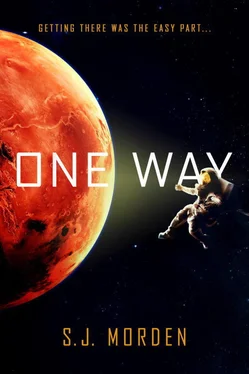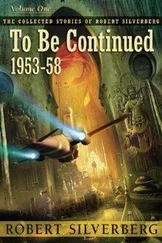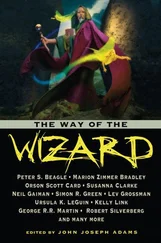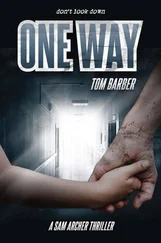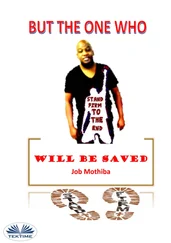In grateful memory of Dr David W Collinson (1927–2007)

orbitbooks.net
orbitshortfiction.com
[Internal memo: Gerardo Avila, Panopticon, to Data Resources, Panopticon, 10/2/2046]
We are seeking inmates who fit the following profile:
• serving either an indeterminate life sentence(s) or a fixed-term sentence(s) that extend beyond the inmate’s natural life-span.
• has had a prolonged period (5 years +) of no contact with anyone on the outside: this includes, but is not exclusive to, family, friends, previous employers and/or employees, lawyers, journalists and authors, advocacy groups, external law enforcement, FBI, CIA, other federal organizations including immigration services.
• has professional qualifications, previous employment, or transferable skills in one of the following areas: transportation, construction (all trades), computer science/information technology, applied science, medicine, horticulture.
• is not suffering from a degenerative or chronic physical or mental condition that would cause death or debilitation in the immediate (5 years +) future.
• is currently in reasonable physical and mental health, between the ages of 21 and 60.
Please compile a list of potential candidates and send them to me by Friday.
Gerardo Avila,
Special Projects Coordinator, Panopticon
“Put your hands on the table.”
Frank’s hands were already cuffed together, joined by three steel links. His feet were also shackled. The seat he sat on was bolted to the ground, and the table in front of him was the same. The room was all wipe-clean surfaces. The smell of bleach was an alkaline sting in the back of his throat and on the lids of his eyes. It wasn’t as if he could go anywhere or do anything, but he still complied with the order. Slowly, he raised his hands from his lap, feeling the drag of the metal biting into his skin, and lowered them onto the black vinyl covering of the table. There was a large hole drilled in it. Another length of chain was run through the circle made by his cuffed arms and into the hole. His guard put a padlock on it, and went to stand by the door they’d both entered through.
Frank pulled up to see how much slack he’d been given. The chain rattled and tightened. Ten, maybe eleven inches. Not enough to reach across the table. The chair didn’t move. The table didn’t move. He was stuck where he was for however long they wanted.
It was a change, though. Something different. To his left was a frosted window, bars on the outside, a grille on the inside. He looked up: a light, a length of fluorescent tube, humming slightly and pulsing in its wire cage. He could see the guard out of the corner of his right eye.
He waited, listening to the nearby hum and the more distant echoing sounds of doors slamming, buzzers rasping, voices shouting. These were the sounds that were most familiar to him. His own breathing. The soft scratch of his blue shirt. The creak of stress as he shifted his weight from leaning forward to sitting back.
He waited because that was all he could do, all he was allowed to do. Time passed. He became uncomfortable. He could only rest his hands on the table, and he couldn’t get up and walk around. Eventually he grunted. “So why am I here?”
The guard didn’t move, didn’t smile. Frank didn’t know him, and wasn’t sure if he was one of the regular staff anyway. The uniform was the same, but the face was unfamiliar. Frank eased forward, twisted his arms so he could put his elbows on the table, and put his weight on them. His head drooped forward. He was perpetually tired, from lights on to lights out. It wasn’t an earned tiredness, a good tiredness. Having so little to do was exhausting.
Then there was the scrabble of a key at a lock, and the other door, the one facing him, that led to the free world, opened. A man in a suit came through, and without acknowledging Frank or the guard, put his briefcase on the table and pushed at the catches. The lid sprang open, and he lifted it to its fullest extent so that it formed a screen between Frank and the contents of the case.
The briefcase smelled of leather, earthy, rich in aromatic oils. The clasps and the corners were bright golden brass, polished and unscratched. They shone in the artificial light. The man pulled out a cardboard folder with Frank’s name on it, shut the briefcase and transferred it to the floor. He sat down—his chair could move—and sorted through his papers. “You can go now. Thank you.”
Frank wasn’t going anywhere, and the guard was the only other person in the room. The guard left, locking the door behind him. It was just the two of them now. Frank leaned back again—the other man was close, too close—and tried to guess what all this was about. He hadn’t had a visitor in years, hadn’t wanted one, and certainly hadn’t asked for this one, this man in a suit, with his tie and undone top button, his smooth, tanned skin and well-shaved cheeks, his cologne, his short, gel-spiked hair. This free man.
“Mr Franklin Kittridge?” He still hadn’t looked up, hadn’t looked Frank in the eye yet. He leafed through the file with Frank’s name on the cover and California Department of Corrections and Rehabilitation stamped on it, turning the translucently thin pages covered with typeface. Paper and board. Everybody else would have used a tablet, but not the cash-starved CDCR.
“Well, if I’m not, both of us have had a wasted journey.”
It wasn’t much of a joke, but it seemed to break the ice, just a little, just enough for the man to raise his chin and steal a glance at Frank before looking down at the contents of the folder again.
Of course, no one had called him “Mr” Kittridge for years. Frank felt a long-dormant curiosity stir deep inside, where he’d shut it away in case it sent him mad.
“Can I get you anything?” the man asked. “Something to eat, drink?”
Frank cocked his head over his shoulder at the locked door behind him. Definitely no guard. He turned back. “You could start by telling me your name.”
The man considered the request. “You can call me Mark,” he said. His tell—a slight blink of his left eye—told Frank that he wasn’t really a Mark.
“If we’re on first-name terms, Mark, why don’t you call me Frank?”
“OK, Frank.” The man not called Mark closed the folder, opened it again, turned some pages. “So what are you in for, Frank?”
“I’m assuming you’re not carrying that file in front of you because you’re short of reading matter. I know you know what’s in it. You know that I know. So while this is a pleasant change of scenery, I’m still going to ask you why you’re here.”
Mark finally looked up, perhaps surprised by the directness aimed at him. “You know you’re going to die in here, right?” he said.
“I’m eligible for parole in eighty-five years. What do you think, Mark?” Frank twitched the corner of his mouth. That was his smile these days. “Do you reckon I’ll make old bones?”
“You’d be—” Pause. “—one hundred and thirty-six. So, no. I don’t think so.”
“Well, dang. I was so looking forward to getting out.”
“You killed a man.”
“I know what I did. I know why I did it. But if you’re looking for contrition, maybe you should have asked for someone else.”
Mark put both his hands on the file. His fingers were long, with buffed, tapered nails. They glowed as brightly as the brass furnishings on his briefcase. “I want to know what you think about the prospect of dying in jail, Frank.”
Читать дальше
